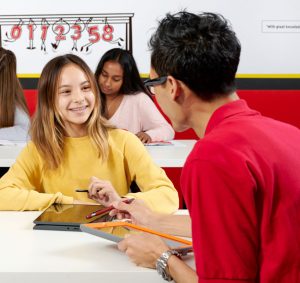Teaching is a demanding profession. Teaching arithmetic is particularly challenging since many children believe they are “poor at math” or won’t utilize math as adults. On the other hand, great math teachers can demonstrate to students how much those that can ought to, and use math in their daily lives.
A secondary math tutor is an individual who helps students understand the concept of math. As more youngsters remain home due to the Covid virus outbreak, tutoring has become a technological substitute for traditional learning. Math is a business essential that may be used in various businesses, including accountancy, architecture, and industry. You don’t have to be a natural mathematician to teach it, and you should also have a good grasp of the foundations.
A secondary math tutor’s responsibilities include:
- Constructing a tailored course curriculum.
- Generating course materials.
- Supporting students in improving mathematical analysis abilities.
- Administering formal exams.
They also assist in the preparation of work assignments and communication with parents regarding student progress.

With the advancement of the internet, digital learning has become an essential aspect of the educational system. There are many sorts of independent math teachers, including these tutors who did not follow the usual path to becoming a teacher. Parents are no longer hesitant to hire these instructors because they provide a unique methodology and approach to instructing their children. For middle and high school students, relaxed math lessons are typically more beneficial, and they are ideal for kids who require assistance with an assignment. So long as you’ve got your unique attitude and admirable qualities to your teaching approaches, you’ll be more approachable and better equipped to assist kids in developing the study habits they need to achieve academically.
Math kids study to identify trends and reason logically. These abilities can also be used for any job. Employers understand that not every person will have specialist knowledge, but they want workers to be critical thinkers who can learn rapidly.
Social and emotional development includes two major components: failure and a growth mentality. Students can either try again or give up when they fail at anything. The learning process will continue if they try again. The growth mindset believes that specific skills, such as mathematical fluency, maybe learned rather than being a set of fixed abilities. Math teaches pupils to learn something new that they can’t get around by faking it. Students will remember these teachings for the rest of their lives.


























